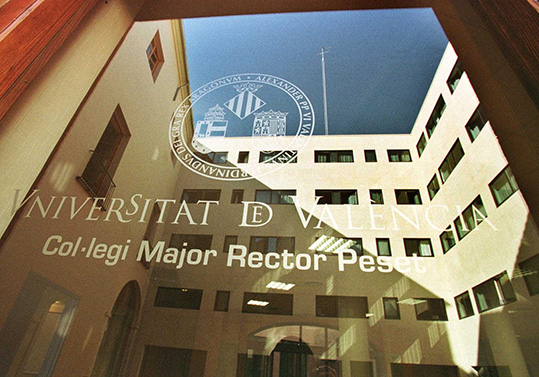Conference at Principal Peset on the production of knowledge in big data’s era
- Press Office
- February 18th, 2020

The Principal Peset Hall of Residence holds this Wednesday 19 February at 19:00 a new session of Els Debats del Magnànim (the Magnanimous Debates), organised by the Institution Alfons el Magnànim-Centre Valencià d’Estudis i d’Investigació. The event comes out of the book Internet i nosaltres. In the conference, which will take place at the Muralla Hall, will participate Michael P. Lynch and Antonio Ariño, sociologist, vice-principal for Culture of the Universitat de València and director of the Institute of Social Sciences and Culture of the Institution Alfons el Magnànim. Lynch’s conference will be given in English, and there will be a service of simultaneous interpretation to Valencian for the attendees available. The entrance, as usual, is free until complete capacity.
The book Internet i nosaltres, translated by Josep Ventura, has been published by the Magnànim in the Estudios Universitarios collection, with an illustrated cover designed by Amaya Oyón.
What do we do with new technologies?
Internet is bringing a revolution in our way of “knowing”. Our libraries are not limited by physical walls any more, and our ways of processing and obtaining what they contain don’t need any more a physical interaction. However, this technological innovation has produced a curious paradox: although we know more, we seem to understand less. Does greater dependence on Wikipedia and Google make knowledge "more democratic"? Is the use of big data to predict cultural trends dangerous?
The arrival of the Internet has encouraged the debate of its effects and if our ethical thinking is up to the challenge that it represented. Which is the influence of accelerated technological changes in our way of knowing? And which is our responsibility concerning this knowledge? Michael P. Lynch and Antonio Ariño will talk about Internet i nosaltres, a book that is not “anti-technological”, but about the way we use technologies based on the analysis of the philosophical foundations of our digital way of life.
File in: Col·legi Major Rector Peset , Conferències i debats













